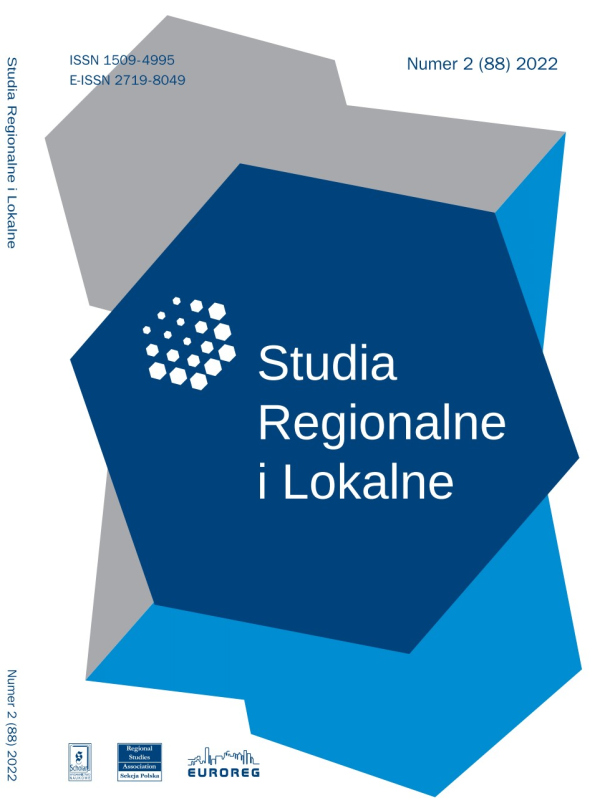Numer:
2(88)/2022
Bartosz Czepil
Wykorzystanie II transzy Rządowego Funduszu Inwestycji Lokalnych jako instrument polityki klientelistycznej rządu wobec samorządu w perspektywie doświadczeń z województwa opolskiego
DOI: 10.7366/1509499528806
Wykorzystanie II transzy Rządowego Funduszu Inwestycji Lokalnych jako instrument polityki klientelistycznej rządu wobec samorządu w perspektywie doświadczeń z województwa opolskiego
Celem artykułu jest analiza rozdziału środków z II transzy Rządowego Funduszu Inwestycji Lokalnej (RFIL) w województwie opolskim oraz debaty w tym regionie wokół zarzutów o klientelistycznym rozdziale funduszu. Według pierwszej z hipotez samorządy rządzone przez mniejszość niemiecką nie są traktowane jako politycznie neutralne i wobec tego mogą być narażone na dyskryminację w alokacji funduszu. Według drugiej specyfika lokalnego układu sił politycznych w województwie, charakteryzująca się niskim poziomem upartyjnienia, daje politykom regionu związanym z rządem możliwość podważania tezy o klientelistycznym rozdziale RFIL. Badania pokazały, że samorządy mniejszości niemieckiej mają mniejsze szanse na uzyskanie wsparcia, w porównaniu z samorządami bezpartyjnymi. Wyodrębniono również pięć sposobów kontrargumentowania wobec tezy klientelistycznej stosowanych przez polityków regionu związanych z partią rządzącą.
Utilising the 2nd Instalment of the Central Government Fund for the Local Investments as an Instrument of Clientelistic Politics Towards the Local Government from the Perspective of Experiences of the Opolskie Voivodeship
The purpose of this article is to analyse both the allocation of the financial support from the 2nd instalment of the CGFLI in the Opolskie Voivodeship and the debate in this region over accusations of the clientelistic allocation of this fund. According to the first hypothesis, the local governments affiliated with the German minority are not treated as politically neutral; therefore, they might be vulnerable to discrimination in allocation of the fund. The second hypothesis claims that the peculiarity of the local political patterns in the voivodeship, which is characterised by the low level of partisanship, gives the ruling party’s regional politicians the opportunity to undermine the thesis on clientelistic distribution of the CGFLI. The research has shown that the local governments affiliated with the German minority have a lower chance of getting financial support when compared to the non-partisan ones. Additionally, the study has distinguished five modes of counter-arguing against the thesis on clientelism, employed by the ruling party politicians of the region.
Afiliacja:
Bartosz Czepil: Uniwersytet Opolski, Instytut Nauk o Polityce i Administracji, Katedra Studiów Regionalnych, ul. Katowicka 89, 45-061 Opole; ORCID: 0000-0003-4907-795X;
bczepil@uni.opole.pl 


